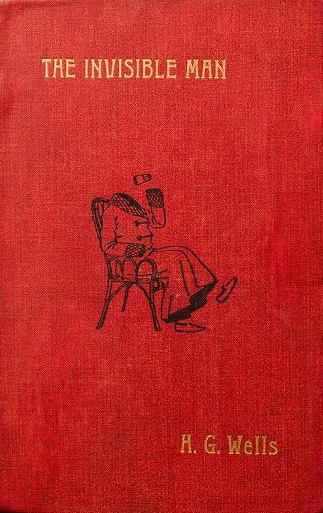How does the film stack up to the novel?

A doctor turns himself invisible and terrorizes others in H.G. Well’s 1897 novel.
Absolute power corrupts absolutely in H.G. Well’s 1897 novel “The Invisible Man” and the same sentiment is made visible in this year’s film of the same title directed by Leigh Whannell. The results are the most frightening things you never saw coming (see what I did there- if you could?).
The book
The book takes place in the English countryside and follows the exploits of a mad scientist, simply named Griffin, who has made himself invisible. Griffin is a complete nihilist who becomes mad with his own power. His exploits after making himself invisible and his experiments drive his father to suicide and his landlord into losing his business.
Griffin inadvertently stumbles upon the home of his former colleague, Arthur Kemp, and tries to force him into establishing a reign of terror with an invisible army. This is a complete afterthought as Griffin is embracing what he thinks he can do.
The invisible man does not see himself (physically or figuratively) as a monster but rather a visionary who deserves his power and therefore abuses it.
One thing that stuck with me for years since I read it was a scene in which the invisible man is chasing Kemp through a countryside but takes time to break a passerby kid’s ankle and smash all the windows of a nearby house for the fun of it.
Rereading it for this review I realized just how horrifying it is. An entire chapter is dedicated to Griffin’s first murder and though it is not explained, it is rather implied that Griffin loses his temper and murders an elderly man who begins noticing his presence. He then suffers a psychological breakdown, singing, laughing and crying over the deed.
In the culmination, Griffin’s obsessions are what destroy him and he is left screaming for the mercy he denied all his victims.
The film
This film was originally envisioned to be a high-budgeted franchise film with Johnny Depp as the titular character—who would have become as invisible as his 650 million dollars. However, the failure of Tom Cruise’s “The Mummy” (2017) made the studio rethink their vision, opting out for a smaller budget R-rated horror film.
There is a scene in the book where Griffin explains to Kemp that he was stuck in a man’s house and remained there watching the man live his daily life. The man then realized he was not alone and pursued the unseen enemy until Griffin lost his temper and threw him down the stairs—incapacitating him. This entire film was like that long scene.
In this story, Dr. Adrian Griffin plays a predator becoming invisible and tormenting his fleeing girlfriend Cecilia. He is the meanest man you’ve never seen.
His only redeeming quality is the manliest voice I’ve heard from a seemingly non-human entity since one of the robots from the 1979 TV series “Buck Rogers.” If you don’t get the reference it is only because I am an ancient dinosaur wearing the skin of a college student.
This story’s focus is on the victim, not the monster. There are many tense scenes in which Cecilia will be in a room and the audience can tell that Griffin is haunting her by being alongside her within that room.
There is a scene lifted straight from the book where the Invisible man murders a cop with his own gun, which I thought was a great homage to the original work.
However, there is something in the film’s climax that ruins the film for me. I can’t explain without spoiling it, so I will turn to the book and explain where it excels where the film, in my opinion, fails.
Though Kemp betrays his friend to the authorities and spearheads his manhunt, he is the only man to stand up for Griffin when he is getting his comeuppance—only seconds after Griffin was killing him.
Kemp did not want to destroy this monster. He really only wanted his friend back; therefore, being a hero and a true friend. In the book, there was a distinction between good and evil. The film made me wonder whether good or evil won and for that, I cannot recommend it.
The victor
I prefer the book over the film as it is a masterpiece about destruction from nihilism, while the film itself seems to glorify nihilism as Griffin did.
